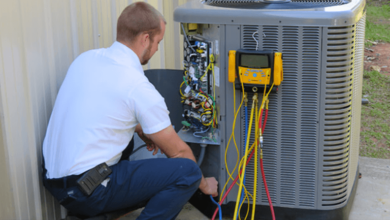Key Considerations When Shopping for a Water Treatment System

Looking to enhance your home’s water quality? Selecting the right treatment system can have a significant impact, but it’s crucial to consider the key factors. Let’s explore the most important points to evaluate when choosing a water treatment system.
Understanding Your Specific Water Needs
A water treatment buyer’s guide suggests starting by understanding specific issues in the supply. Testing the water can identify contaminants or minerals that need to be addressed. Common issues include hard water, high chlorine levels, or contaminants like lead and pesticides. Knowing the pH and mineral content also helps narrow down the most suitable solution.
Some options focus on filtering out specific contaminants, while others are designed for broader treatment. Identifying whether the goal is purification, softening, or simply improving taste is helpful. Knowing these needs will guide you to the most effective choice.
See also: Health Benefits of Cold Water Immersion in Richmond, Ontario
Types of Treatment System
Once needs are clear, it’s time to consider different types of systems. Options range from whole-house units to under-sink solutions, each offering distinct advantages. Whole-house systems treat the entire supply as it enters the home, making them ideal for issues like hard water. Countertop or faucet filters are portable and focus on providing purified drinking water. Reverse osmosis units are another popular choice for thorough filtration.
Some common types include:
- Whole-House Systems: Treats the entire supply throughout the home.
- Under-Sink Units: Targets specific areas, such as the kitchen.
- Countertop Filters: Portable and easy to install.
- Reverse Osmosis: Known for comprehensive filtration.
- Water Softeners: Reduces hardness by removing minerals.
Choosing the right type depends on household size and specific quality needs. Each type offers unique benefits suited to various requirements.
Maintenance Required
Maintenance is an essential consideration when choosing a treatment system. Some units require minimal upkeep, while others need regular filter changes or salt refills. Reverse osmosis systems, for instance, often need new filters every six months.
Whole-house units may require more substantial servicing, especially if they have multiple filtration stages. Determine whether professional assistance is necessary, as some systems are more complex. Evaluate how much time and effort can realistically be dedicated to upkeep. A low-maintenance option might be best for those seeking convenience.
Initial and Long-Term Costs
Cost is another important factor, covering both initial and ongoing expenses. Some options have a high upfront cost but low maintenance fees, while others may have affordable installation but frequent filter replacements. Whole-house units generally have higher initial costs due to their extensive coverage.
Replacement costs can vary significantly, especially for multi-stage or specialty filters. Knowing long-term costs helps avoid surprises down the road. Consider warranties and service plans that may come with the purchase. A clear cost assessment ensures a solution that aligns with budget expectations.
Certification and Environmental Impact of the System
Certifications help ensure the treatment unit meets safety and performance standards. Look for options certified by organizations like NSF International, which tests products for effectiveness in reducing contaminants. Eco-friendly systems are also beneficial, as they conserve resources and reduce waste.
Some options include energy-efficient technology or recyclable filters, which contribute to a lower environmental impact. Additionally, inquire about any chemicals used in the filtration process to ensure safety. Choosing a certified, eco-conscious option can offer peace of mind. This step adds assurance that the unit will perform reliably and responsibly.
When shopping for a water treatment system, it’s essential to consider factors like specific needs, maintenance requirements, and overall costs. A comprehensive water treatment buyer’s guide can further clarify these factors, helping consumers make informed choices. By focusing on these considerations, finding the ideal option becomes a more straightforward process. Choosing the right solution ensures a reliable supply of high-quality water for the home.




